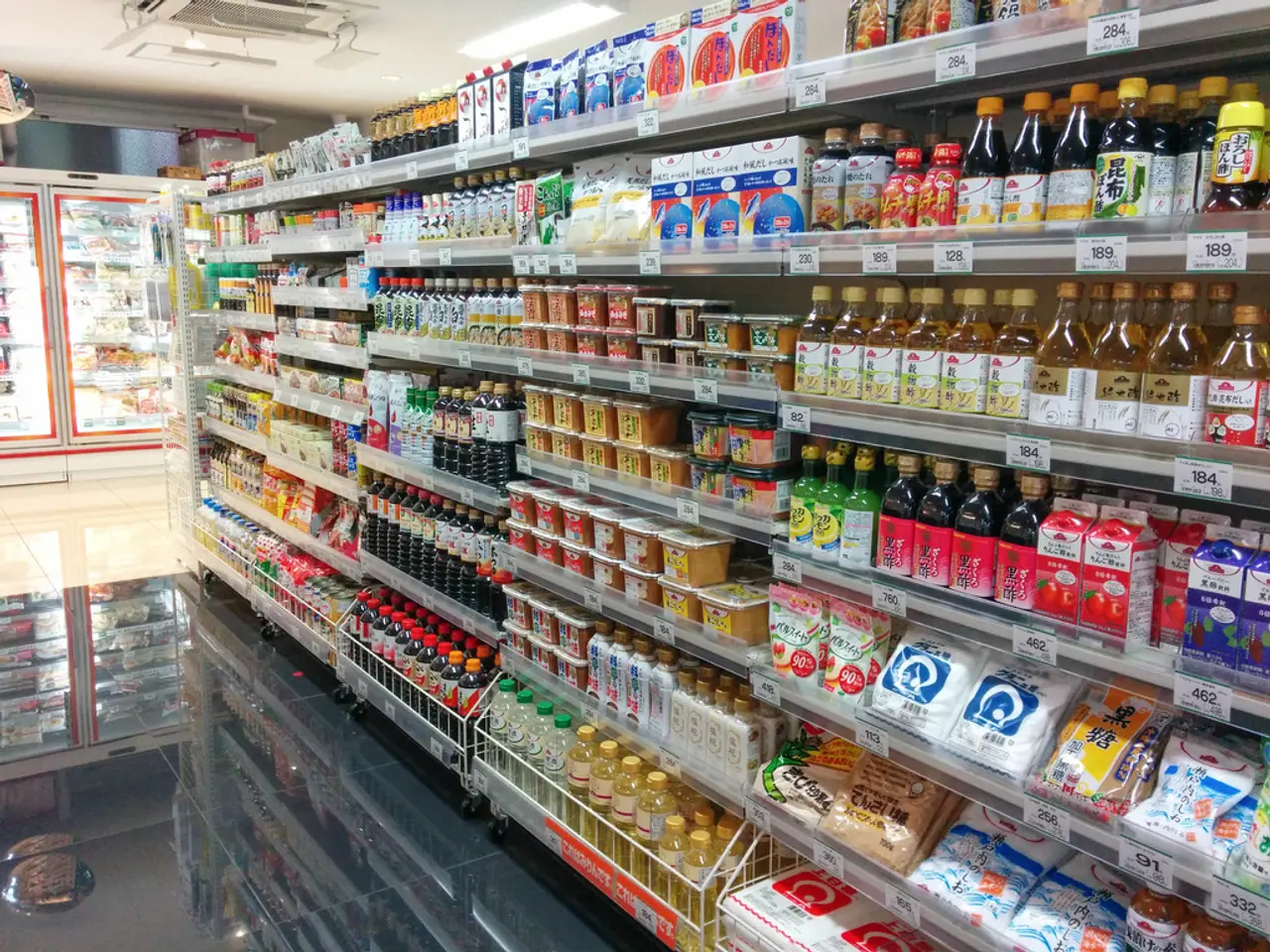Farm loans remain budget-friendly: The cabinet endorses prolongation of 1.5% interest reduction scheme for farmers, aiding 7.75 crore agrarian individuals, until 2026.
In a significant move to support the farming community, the Indian government has continued to maintain the Modified Interest Subvention Scheme (MISS), ensuring consistent aid for the agricultural sector. This scheme, particularly crucial for small and marginal farmers, plays a vital role in fostering financial inclusion in rural India.
One of the key initiatives under MISS is the Kisan Credit Card (KCC), designed to provide low-interest short-term credit for farmers engaged in animal husbandry and fisheries. As of the current date, there are more than 7.75 crore KCC accounts across the country, indicating the scheme's widespread adoption.
### Eligibility for KCC under MISS
To be eligible for a KCC, farmers involved in animal husbandry and fisheries, including individual or joint borrowers who are owner cultivators, are eligible. Tenant farmers, oral lessees, and sharecroppers engaged in agriculture and allied activities are also eligible. The applicant must be aged between 18 and 75 years and own or lease agricultural land or have a relevant engagement in animal husbandry or fisheries.
### Features of KCC under MISS
The KCC offers a short-term credit limit for meeting working capital requirements in crops, animal husbandry, and fisheries. Under MISS, farmers can access low-interest loans, sometimes as low as 2% per annum for loans up to Rs. 3 lakh. The credit card typically has a validity period of 5 years with annual renewal.
Loans cover inputs and capital for crops, animal husbandry, and fisheries-related expenses. The KCC also provides personal accident insurance coverage up to Rs. 50,000 for death and permanent disability, and Rs. 25,000 for other risks. Flexible withdrawal as per credit limit is possible through bank branches or ATMs.
Collateral requirements vary with loan amount. Loans up to Rs. 1 lakh generally have no collateral; above that, collateral or suitable security may be required unless covered under tie-up arrangements. Banks evaluate repayment history and productivity to renew or enhance the credit limit.
### Documents Required for KCC under MISS
To apply for a KCC, applicants must submit proof of ownership or tenancy of agricultural land or document verifying engagement in animal husbandry/fisheries. Identity proof (such as Aadhar card, PAN card), address proof, income proof or statement to demonstrate repayment capability, bank account details, and sometimes, collateral documents if applicable, such as registered mortgage or land documents, are also required.
### The Impact of MISS and KCC
The Modified Interest Subvention Scheme (MISS) has been instrumental in sustaining the flow of affordable institutional credit to the agriculture sector. Since its introduction, agricultural credit flow has increased significantly, from Rs 7.3 lakh crore in 2013-14 to Rs 25.49 lakh crore in 2023-24.
Institutional credit through KCC has seen a substantial increase as well, rising from Rs 4.26 lakh crore in 2014 to Rs 10.05 lakh crore by December 2024. The Union Cabinet, chaired by Prime Minister Narendra Modi, has approved the continuation of the Modified Interest Subvention Scheme (MISS) for the financial year 2025-26, ensuring the scheme's ongoing support for the farming community.
This combination of eligibility, features, and document requirements ensures farmers in animal husbandry and fisheries can access credit conveniently under the Modified Interest Subvention Scheme via the Kisan Credit Card, empowering these sectors with adequate credit and reducing the financial burden on farmers.
- Farmers engaged in animal husbandry and fisheries, regardless of the type of land ownership, can utilize the Kisan Credit Card (KCC) under the Modified Interest Subvention Scheme (MISS) to access low-interest loans for their business.
- The Modified Interest Subvention Scheme (MISS) and its Kisan Credit Card (KCC) initiative have profoundly impacted the agricultural business sector, helping it gain access to affordable institutional credit, thereby enhancing financial inclusion in rural India.




